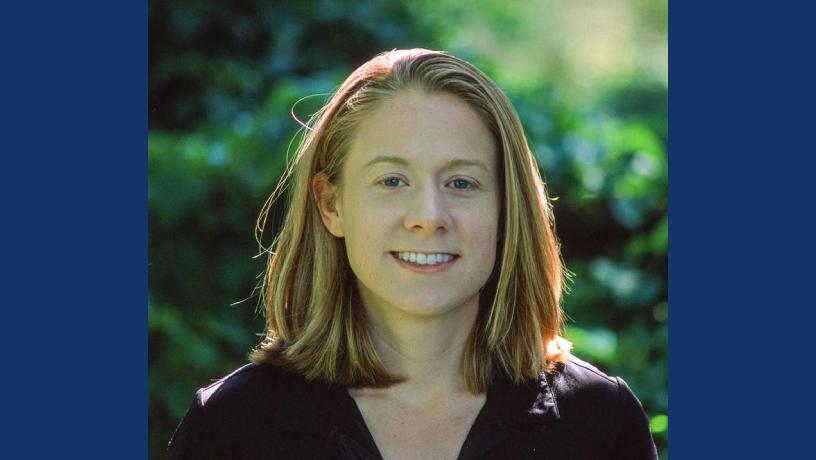Elizabeth Paul Wins DOE Early Career Research Award
Applied physicist recognized for work in controlled fusion

The U.S. Department of Energy (DOE) has chosen Elizabeth Paul, assistant professor of applied physics and applied mathematics at Columbia Engineering, as an early career scientist for its 2023 Early Career Research Program.
Paul is among 93 young scientists recognized this year as a next-generation leader in STEM for her proposal “Modeling fast-ion mode interactions toward a stellarator infusion power plant.”
Controlled fusion has the potential to be a long-term and sustainable energy source. With the emergence of the stellarator as a leading alternative to the tokamak for fusion power plants (FPPs), researchers have been focused on developing methods to control energetic particle (EP) instabilities in a stellarator FPP. Confining EPs for a length of time is of critical importance to maintain the fusion burn and prevent deterioration of the FPP’s walls.
Paul’s project is focused on advancing 3D modeling capabilities to better understand mode-particle interactions and control them through 3D shaping. Through theoretical and advanced computational techniques, she hopes to develop models for new stellarator FPP design concepts with enhanced EP confinement.
Paul received her AB in astrophysical sciences with concentrations in applied and computational mathematics and applications of computing from Princeton University in 2015 and her PhD in physics from the University of Maryland, College Park, in 2020. She was previously a Presidential Postdoctoral Research Fellow at Princeton University from 2020 to 2022.
The Early Career Research Program was established in 2010 to support the nation’s young researchers and drive scientific innovation. This year, the DOE awarded $135 million in funding to universities and national laboratories across the country.
